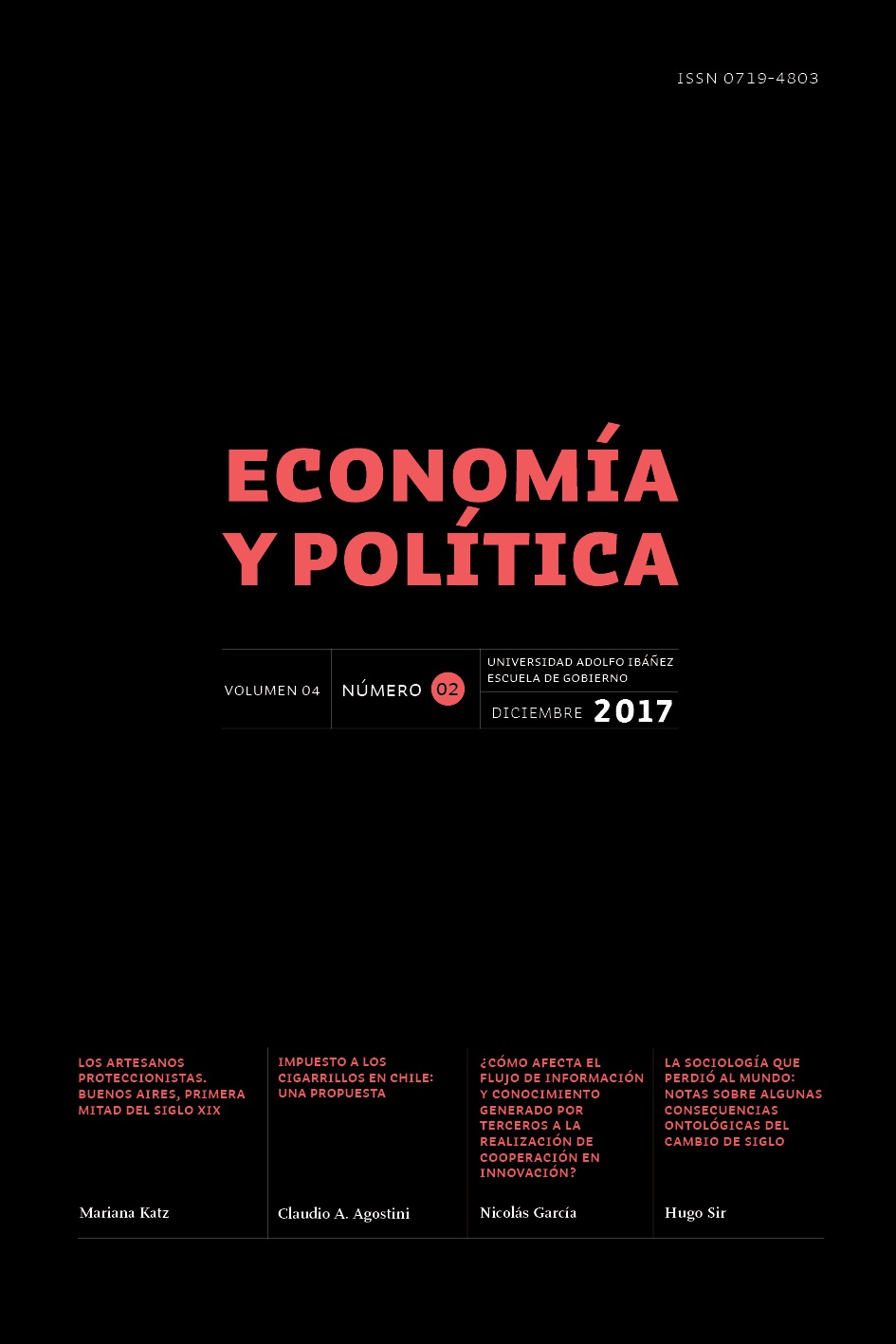How does the flow of information and knowledge affect the realization of cooperation in innovation?
DOI:
https://doi.org/10.15691/07194714.2017.007Keywords:
Incoming spillovers, innovation, cooperation, ChileAbstract
The economy of innovation has categorized the incoming spillovers as one of the most important factors to encourage firms to enter into cooperation agreements in innovation (R & D). Based on this idea, the present empirical research sought to analyze the heterogeneous effects of the different types of spillovers (public, institutional, vertical and horizontal) on the decision of cooperation in innovation of the Chilean firms. For this purpose, the article analyzes the effect of spillovers on different types of cooperation agreements made by SMEs and large companies. Using the 9th Innovation Survey (2013-14) and applying a probit model with instrumental variables for each of the spillovers, it was found that there are indeed heterogeneous effects of the different incoming spillovers on the implementation of cooperation agreements in innovation. In particular, the paper emphasizes that the effect of institutional spillovers is greater for small and medium-sized enterprises, suggesting the importance of the flow of knowledge from universities and R & D institutes on innovation cooperation.


